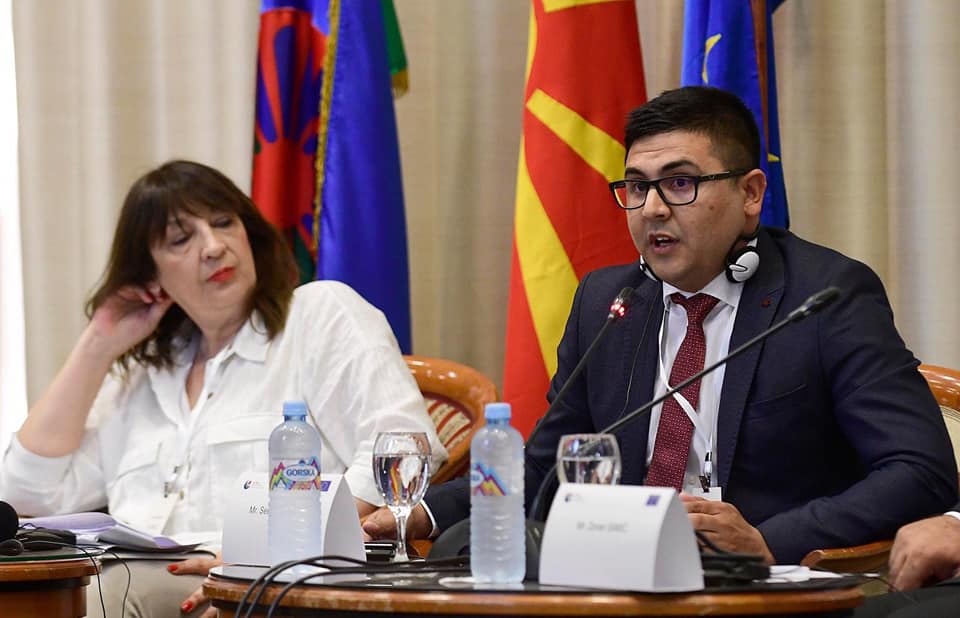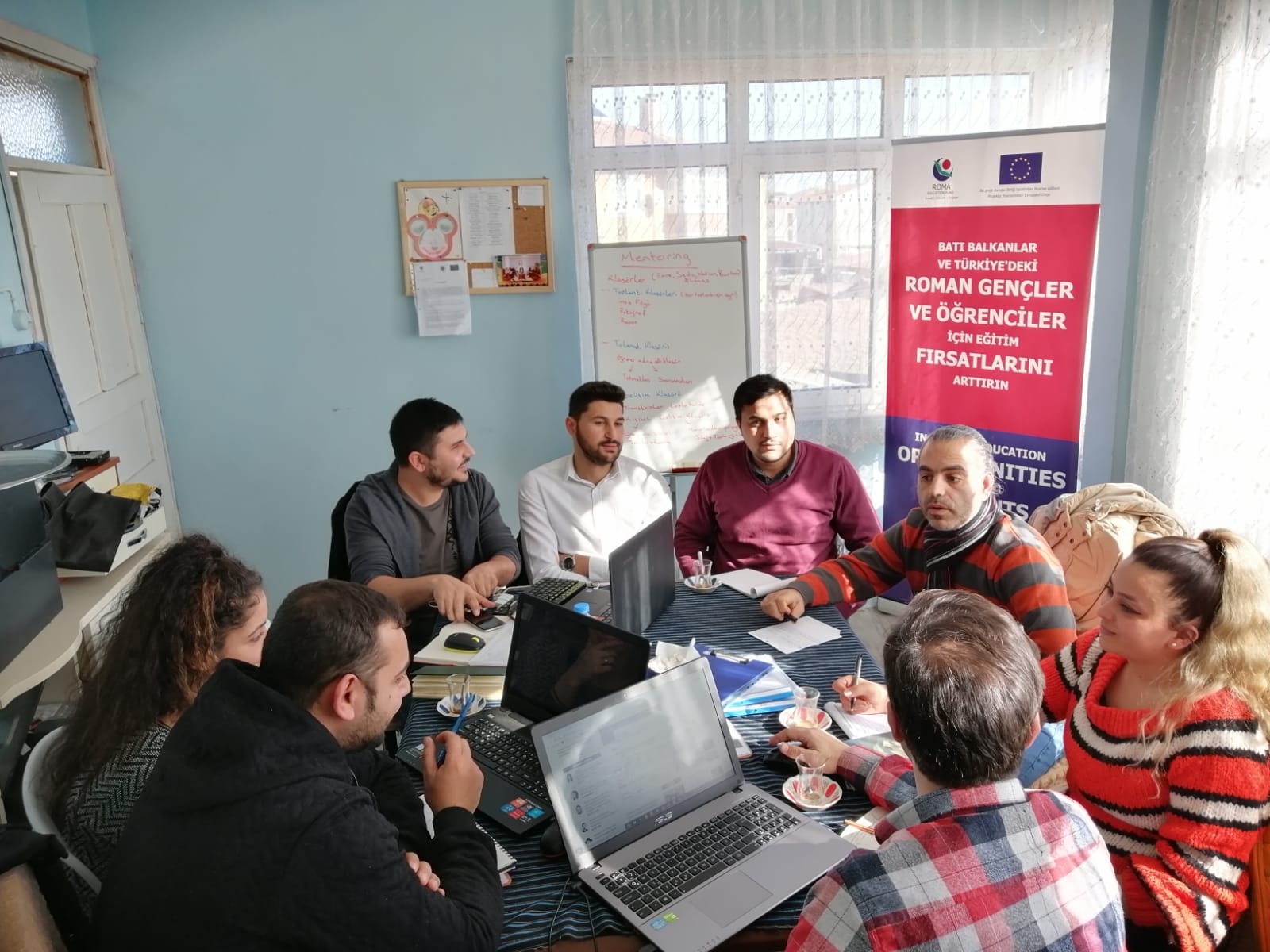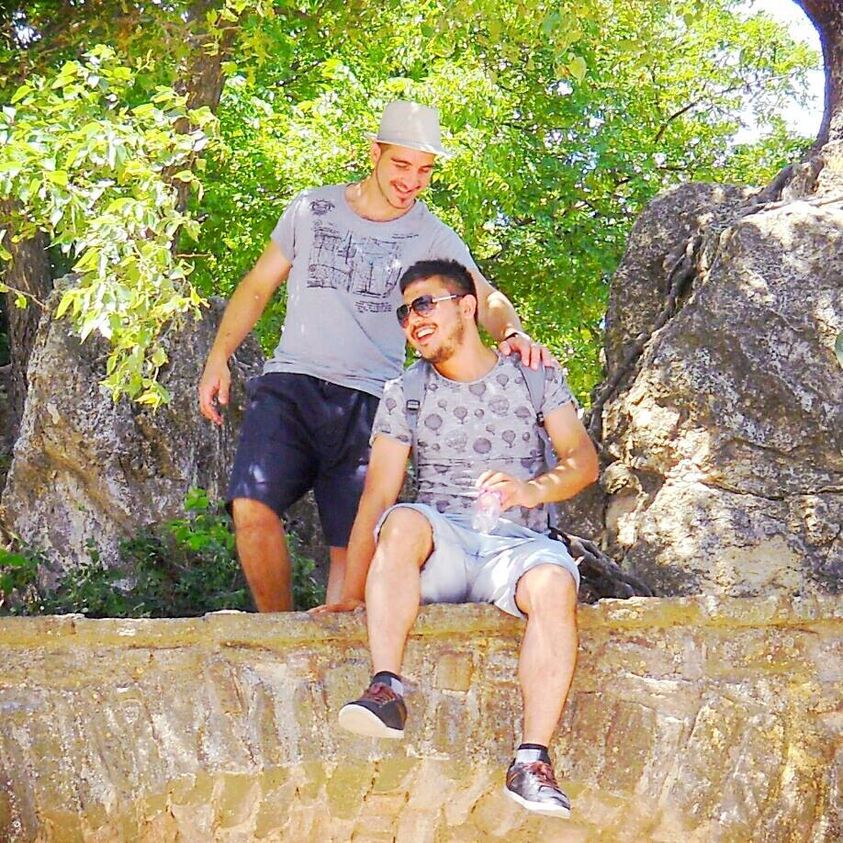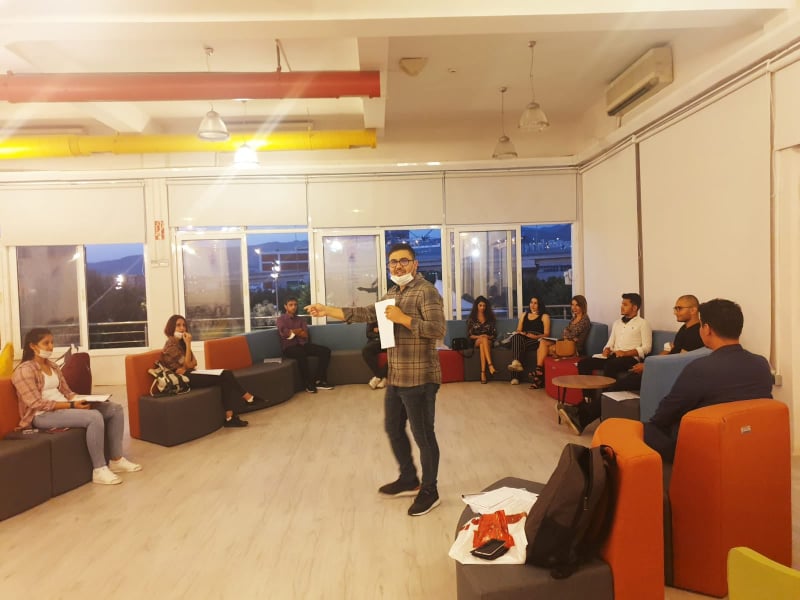Serkan Baysak comes from Turkey, he is a Roma Memorial University Scholarship (RMUSP) alumni (2009 – 2013).
Serkan started to work for REF since 2016 as National Selection Board Member for Turkey for RMUSP applicants’ selection in 2016.
He has been an Assistant expert for Regional Cooperation Council (RCC) for evaluating of 1st phase of Roma Action Plan 2016-2018 and assisting to develop 2nd phase of Roma Action Plan 2018-2021 in Turkey.
The young man has become REF Country Facilitator for Turkey for the RARE project on Increasing the Educational Opportunities for Roma in 2018.
He has served as a Coordinator of national volunteers to fight with digital antigypsyism for the European Roma Right Centre since beginning of 2020.
Serkan has been advising a few Youth and Roma NGOs on how to establish sustainable policies for their vision and mission.

REF International event
REF: What was the turning point in your career that has led right to choosing this specialization of yours?
Serkan: I hold two degrees that are Mechanical Engineering and Business Management. I have joined Roma English Language Program in CEU Budapest in 2013-2014 academic years. Currently, I am enrolled in the Department of Justice, Anadolu University. I would like to proceed with MA in Law studies in the near future.
A primary school teacher has been my guiding light for four years. I owe a lot to his mentoring and tutoring. He urged me that I am able to study and obtain a profession of a qualified worker.
Another milestone was the encounter with REF scholarship opportunity. Luckily, RMUSP scholarship helped me to cope with financial issues and to continue my educational path.
REF: Can you tell us about a case from your studentship or professional practice that you will highlight as making you proud of?
Serkan: These are the students, employed thanks to the project „EU Regional Action: Increased education opportunities for students and Roma youth in Western Balkans and Turkey”. Since 2018, 18 secondary school students have been awarded with REF -/ EU-funded scholarships and subsequently employed. I am proud of implementing projects which aim at empowerment and development of the young Roma generation.
REF: Why it is important for Roma to be part of the profession you represent?
Serkan: Until now, I have had sincere professional relations with non-Roma people who were working on REF- supported programs in Turkey. I had synergy with them; I always felt their support towards me and the Roma students. During all these years, I started to believe that if we had Roma staff in Turkey for REF programs, it would be an added value for the REF principles. Moreover, Roma staff in Turkey will contribute towards changing the mindset of Roma communities on the importance of studies and professional life thereafter.

REF: How would you inspire the Romani children and youth to go for education? Which potential obstacles in their educational and career path would you warn them about?
Serkan: Students tend to inquire me if I were Roma myself, because they have not had the chance to often meet an educated Roma person. There are plenty of Roma young people who have been employed in different companies, holding good positions. However, in my opinion, if a Roma youngster joins a NGO, s/he works mainly in the field. That explains why when students learn that I am Roma, representing REF in Turkey, their shinning eyes full of hope. Then I give details about my journey to the current position, and, having similar starting position in life as most of them, inspires the Roma students that success and career are possible. However, I always warn the young Roma that financial problems and discriminative approaches should not impede their plans and dreams.
REF: How do you utilize your cultural heritage in everyday life?
Serkan: To access more and more Roma youngsters. When I meet new Roma youngsters and families they are not so warm. After they learn that I was Roma, they are more relaxed and if I show a piece of Roma culture in me, for example, knowledge of Romani language, they feel secure and become sincere.
In my opinion, language is one the most important component of culture for all the nations and ethnicities. Romanes is a unique tool in Roma culture. I have had chance to visit Roma in a few countries and Romani language was the only common bridge between us, as it has helped me to create an honest dialogue with families, students and friends from different geographies.

REF: Tell us about your involvement in activities and events aimed at supporting Roma communities
Serkan: I have encountered the Roma movement via REF by participating in youth initiatives in 2009-2010. I have organized capacity-building training for Roma NGOs and young people. I have launched a scholarship initiative group in Malkara, which is my hometown (it is in Marmara region). I was the first Roma who has been enrolled in institution of higher education in Malkara. It took a lot of time but thanks to the scholarship initiative group, dozens of Roma from our neighborhood were enrolled in university.
REF: What sort of impact your volunteering had on you? What sort of impact the volunteering activities you performed, had on your community?
Serkan: The most important impact of voluntary works on myself is the inner peace. When I see the dedication and sincere approaches of REF volunteers.
The most important impact of the volunteering activities regarding the broader Roma communities is the increased educational level among the younger people. When I was enrolled in an institution of higher education, I was the only one from my town doing so. Upon years of voluntary work, now we have hundreds of Roma university students around Turkey.


















